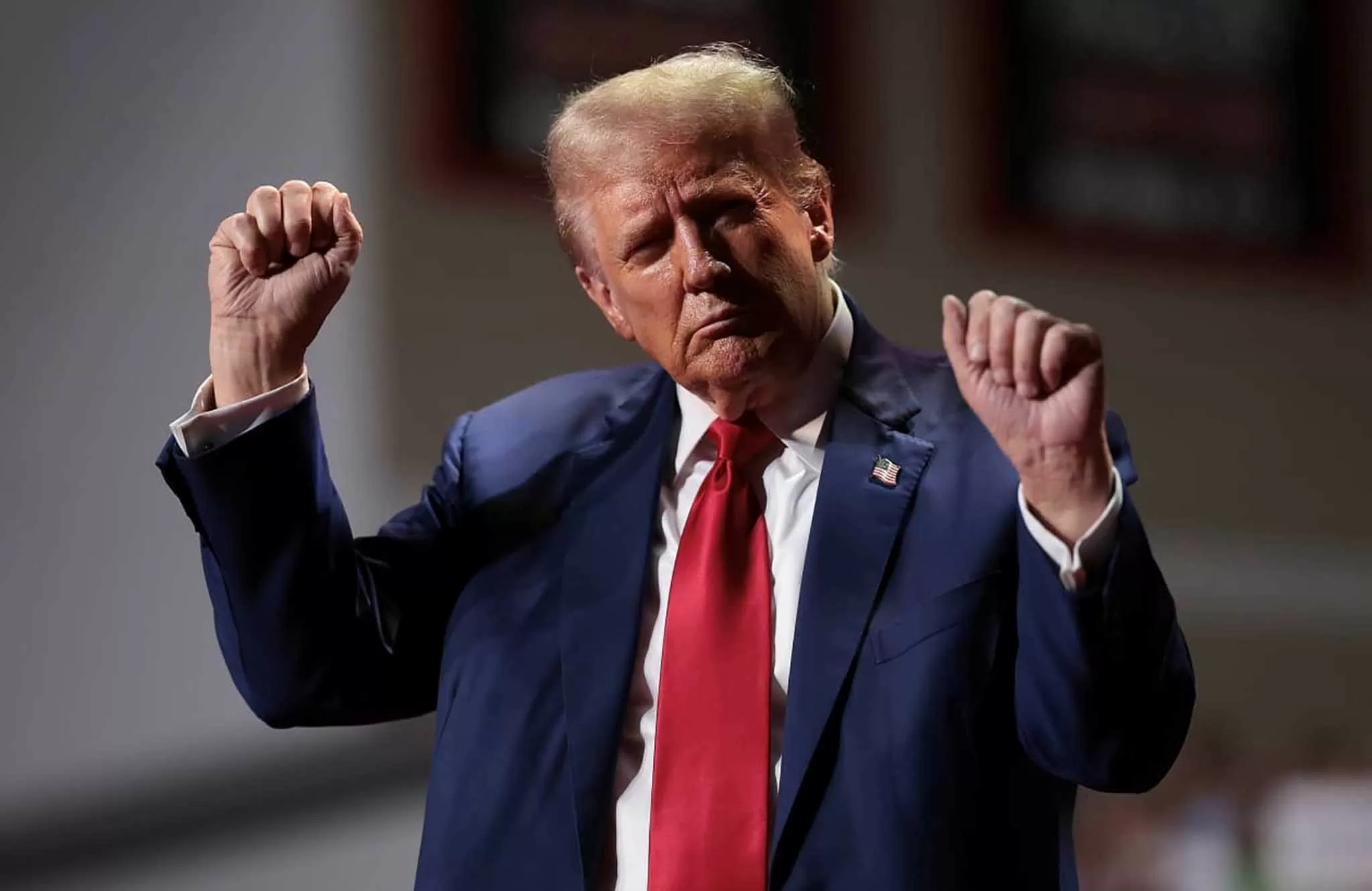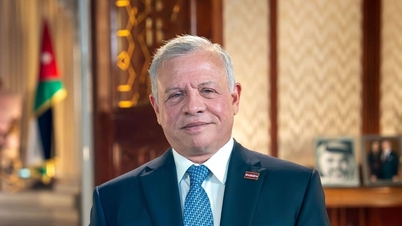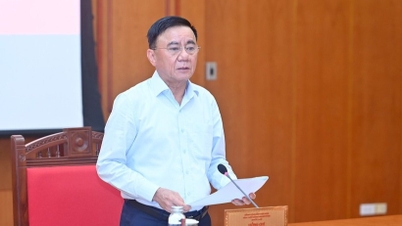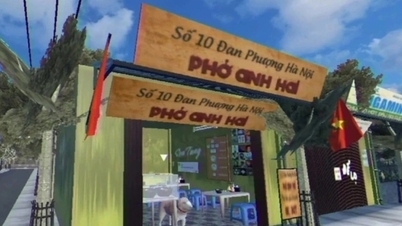The economic issue is one of the key factors that helped Mr. Trump win this year's election - partly because voters are not satisfied with the current situation, while the specific commitments of the President-elect have "hit the bull's eye."
 |
| Americans are again looking forward to Mr. Trump's commitments to make "America great again!" (Source: Getty Images) |
The media believes that American voters are still nostalgic for the period of low inflation and relatively good economic growth during Mr. Trump's first term, before the Covid-19 pandemic. At that time, in the early years of his first term (2017-2021), Mr. Trump was assessed to have brought better economic results than expected when he was elected. This time, Americans are again expecting Mr. Trump's commitments - to make "America great again!".
Restart the old policy
This year, investors often talk about the possibility of a “soft landing” when analyzing factors in the world’s largest economy. However, the re-election of Donald Trump as US President for the 2025-2029 term makes everything much more unpredictable.
Nobel Prize-winning economist and Columbia University professor Joseph Stiglitz believes that the US economy is in a “soft landing” phase, but this phase could end on January 20, 2025 - when Mr. Trump officially returns to the White House.
Mr. Trump and his allies have laid out a comprehensive and ambitious conservative agenda for his first 100 days. Observers say the top priorities are likely to be the most talked-about promises of the election campaign, related to immigration and a series of economic reforms. The next “arrows” will target some of the current administration’s policies, while continuing to restart old policies from where he left off after his first term.
The bureaucracy and negotiations could delay the president-elect’s plans somewhat. But as the Wall Street Journal writes, Mr. Trump’s first chance to make his economic mark in office will be on tariffs—an area where he can act without congressional approval.
Section 301 of the US Trade Act of 1974 allows him to do just that, to stop what he considers unfair trade practices or practices that are harmful to the national interest.
The economic tools most frequently mentioned during the campaign were comprehensive tariffs on imports and a plan to reduce taxes at home. As he had said before the election, he threatened to impose tariffs of 10% or higher on all imports and as high as 60% on Chinese goods.
Some fear that if Trump follows through on his campaign promises, the US economy could face a surge in inflation, as his proposed policies, such as higher tariffs on imports, domestic tax cuts and immigration restrictions, could all potentially cause higher inflation.
In fact, the above policies may stimulate growth, but also put great pressure on the already high federal budget deficit and force the US Federal Reserve (Fed) to reconsider its interest rate path.
From another perspective, Minneapolis Fed President Neel Kashkari noted the possibility of other countries retaliating like a trade war, then inflation would likely remain high in the long run.
More optimistically, Scott Paul, President of the Alliance for American Manufacturing, said that the President-elect's economic agenda is not only to stimulate economic growth and revive American manufacturing, but also to restore good jobs and reduce dependence on China.
“There are definitely costs. But in many cases, I think they’re worth it,” said Scott Paul.
Another reason is that the economy that Trump has taken over this time is considered relatively good. GDP continues to grow steadily despite interest rate hikes, retail sales have exceeded forecasts, unemployment has hovered around 4%, and inflation has fallen significantly from its peak to near its 2% target. Moreover, the Fed has entered a monetary easing cycle, which should keep the risk of a recession to a minimum.
The Golden Age of AI?
Another high-profile pledge from Mr. Trump is to cut climate subsidies, repeal some environmental policies from the current President’s Deflation Act and further expand oil exploration and exploitation, including tax breaks for oil, gas and coal producers.
“We will unleash American energy and I will cut energy prices in half within a year starting January 20,” Mr. Trump declared at a campaign rally at Madison Square Garden, New York last month.
However, Mr. Trump's second term will not only make America an "energy nation" as the slogan "Drill, Baby, Drill!" suggests.
Artificial intelligence (AI) will also be part of “America’s new golden age,” Trump said at the Republican National Convention in July. “He said, AI is scary, but we have to win, or China will win,” two prominent innovators, Marc Andreessen and Ben Horowitz, said of another Trump statement.
Silicon Valley is now showing goodwill to the President-elect because he has promised to strongly support AI development, in competition with the world's second most powerful economy - China.
“I wish Donald Trump every success in leading and uniting the America we all love,” Amazon CEO Jeff Bezos is not the only big tech leader to send goodwill to Mr. Trump. A series of big names in the technology industry such as Google, Apple, Microsoft Satya Nadella and OpenAI announced their “desire to cooperate” to strengthen the leadership role of the US.
This time, big tech's enthusiasm is a far cry from their own lukewarm response to Mr Trump's victory in 2016 — when they didn't even entertain an invitation from the White House.
Mr. Trump is expected to become an ally of American technology corporations in the fight with the European Union (EU). In addition, antitrust and competition policies may also be relaxed for big tech because the President-elect needs them in the trade war with Beijing.
As Mr. Trump prepares to return to the White House, Republicans say they will act aggressively to enforce the agenda set by the President-elect.
And as House Speaker Mike Johnson told reporters, in the spirit of “fixing almost everything,” they’ll start by securing the border — something the American people demand and deserve. Then they’ll go straight into the economy.”
Source: https://baoquocte.vn/danh-doi-xung-dang-cua-ong-trump-294536.html







![[Photo] Cutting hills to make way for people to travel on route 14E that suffered landslides](https://vphoto.vietnam.vn/thumb/1200x675/vietnam/resource/IMAGE/2025/11/08/1762599969318_ndo_br_thiet-ke-chua-co-ten-2025-11-08t154639923-png.webp)










































![[Video] Hue Monuments reopen to welcome visitors](https://vphoto.vietnam.vn/thumb/402x226/vietnam/resource/IMAGE/2025/11/05/1762301089171_dung01-05-43-09still013-jpg.webp)
















































![Dong Nai OCOP transition: [Part 2] Opening new distribution channel](https://vphoto.vietnam.vn/thumb/402x226/vietnam/resource/IMAGE/2025/11/09/1762655780766_4613-anh-1_20240803100041-nongnghiep-154608.jpeg)












Comment (0)